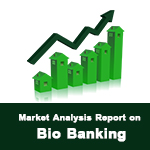
Mohamed A Zayed
Washington University School of Medicine, USA
Title: Peripheral artery and blood biobanking can lead to scientific collaboration and discovery
Biography
Biography: Mohamed A Zayed
Abstract
Objectives: Over 3 million Americans have advanced peripheral arterial occlusive disease leading to significant patient morbidity and mortality. The lack of well-preserved human peripheral arterial tissue substrate has limited scientific exploration of this disease process and development of impactful-targeted molecular therapies. To address this, we developed an integrative biobanking strategy to collect peripheral arterial tissue specimens from patients undergoing vascular surgery.
Methods: Over 29 months, we harvested vascular specimens from consenting patients undergoing open arterial endarterectomy and revascularization procedures. All patients were enrolled in an IRB approved protocol. A biobank infrastructure was developed to manage logistics, funding, collection, and real-time processing of harvested arterial tissue.
Results: 486 patients were enrolled in the vascular surgery biobank prior to their index operation. Forty-two (42) clinical variables were evaluated for each patient during the perioperative period. Vascular specimens were successfully collected for 72.3% (349) of patients who enrolled in the biobank. The majority of specimens collected were retrieved from the peripheral arterial system (38.7% carotid artery, 9.5% anterior or posterior tibial arteries, 24.4% femoral or popliteal arteries). For all patients, blood samples were collected and processed to provide serum (85.5%) and plasma (86.1%). Each arterial specimen was sub-divided into maximally and minimally diseased portions to facilitate intra- and inter-patient biochemical and molecular analyses. Over the study period 8 collaborations (in 4 different departments at 2 universities) were fostered to provide 82 tissue specimens and 98 blood samples.
Conclusions: An integrative biobanking approach in vascular surgery patients is feasible and provides a highly unique peripheral arterial substrate for molecular and biochemical analyses. Biobanking management and daily operations requires a dedicated team approach to insure proper patient consenting, specimen collection, subsequent experimental analysis and meaningful scientific collaborations.

